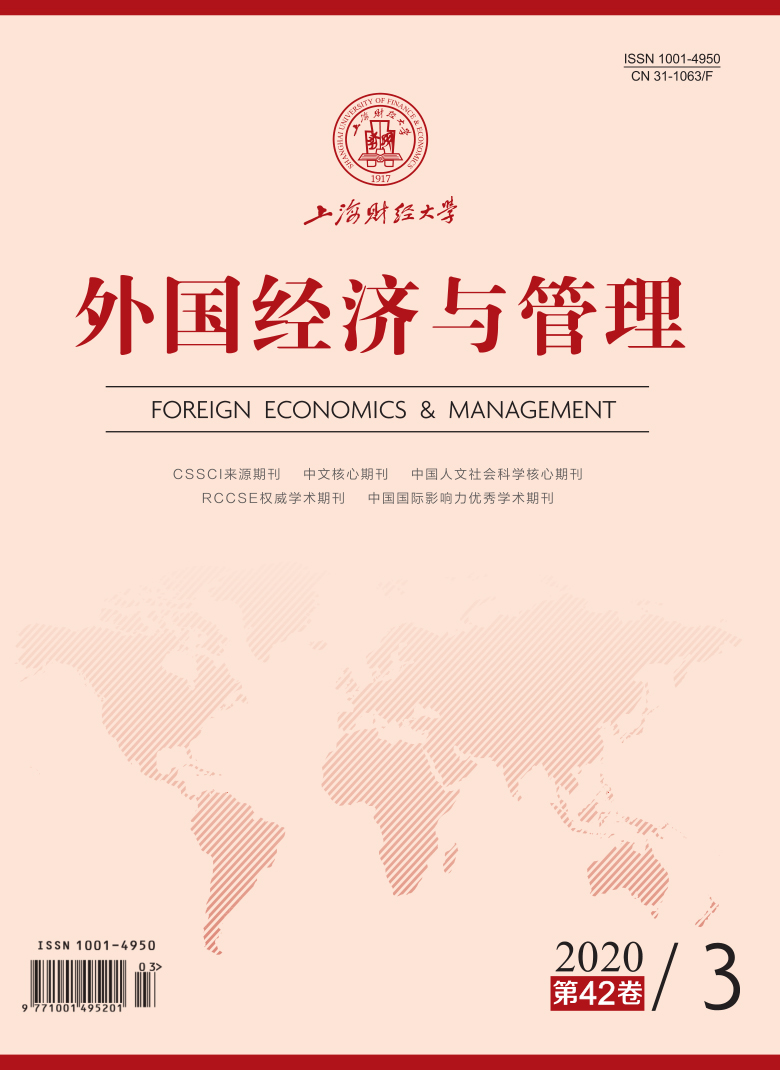The mechanism of knowledge search facilitating enterprise innovation performance has always been the core issue in the fields of knowledge management, innovation management and strategic management. Actually, more than half of articles in the field of knowledge search research focus on discussing the topic of how knowledge search affects enterprise innovation performance, especially after the year of 2012. However, the existing research has not conducted a systematic and comprehensive literature review of a large amount of articles regarding the topic. Therefore, this study presents a systematic literature review for the topic of how knowledge search affects enterprise innovation performance, covering 95 scholarly articles published between 2001 and 2018. Based on the analysis, we provide the shortcomings of existing research results and suggest promising directions for future investigation. Firstly, this study systematically demonstrates the conception, dimensions and measurement methods of knowledge search. Secondly, based on different dimensions of knowledge search, it reviews the influencing mechanism of different types of knowledge search on enterprise innovation performance(including the positive, negative and inverted U-shaped effects). Thirdly, it summarizes the ambidexterity effects(complementary and balanced)of knowledge search and the portfolio effects of the tactics of multidimensional knowledge search on enterprise innovation performance. Fourthly, it fully combs the moderating and mediating effects on the relationship between knowledge search and enterprise innovation performance. Finally, it constructs an integrative framework for the influencing mechanism of knowledge search on enterprise innovation performance, and proposes limitations of current research and five possible directions of future research:(1)The evolution of regularization in knowledge search behavior and its dynamic mechanisms on enterprise innovation performance need to be revealed;(2)The extension of the ambidexterity theory in the research field of knowledge search affecting enterprise innovation performance remains to be improved;(3)The impact of multi-dimensional knowledge search on enterprise innovation performance requires to be expanded;(4)The mediating mechanism of knowledge search affecting enterprise innovation performance should be deepened;(5)Research on knowledge search influencing enterprise innovation performance in the context of China’s special situation and the emergence of new information technology is worth exploring. This paper clarifies the research status of how knowledge search affects enterprise innovation performance, and provides a foundation for the follow-up research in this field.
 / Journals / Foreign Economics & Management
/ Journals / Foreign Economics & ManagementForeign Economics & Management
JIN Yuying, Editor-in-Chief
ZhengChunrong, Vice Executive Editor-in-Chief
YinHuifang HeXiaogang LiuJianguo, Vice Editor-in-Chief
How does Knowledge Search Influence Enterprise Innovation Performance? A Literature Review and Prospects
Foreign Economics & Management Vol. 42, Issue 03, pp. 17 - 34 (2020) DOI:10.16538/j.cnki.fem.20191216.001
Summary
References
Summary
[1] Caner T, Tyler B B. The effects of knowledge depth and scope on the relationship between R&D alliances and new product development[J]. Journal of Product Innovation Management, 2015, 32(5): 808-824.
[2] Chen J, Chen Y F, Vanhaverbeke W. The influence of scope, depth, and orientation of external technology sources on the innovative performance of Chinese firms[J]. Technovation, 2011, 31(8): 362-373.
[3] Chiang Y H, Hung K P. Exploring open search strategies and perceived innovation performance from the perspective of inter-organizational knowledge flows[J]. R&D Management, 2010, 40(3): 292-299.
[4] Cruz-González J, López-Sáez P, Navas-López J E, et al. Open search strategies and firm performance: The different moderating role of technological environmental dynamism[J]. Technovation, 2015, 35(1): 32-45.
[5] Franzoni C, Sauermann H. Crowd science: The organization of scientific research in open collaborative projects[J]. Research Policy, 2014, 43(1): 1-20.
[6] Grimpe C, Sofka W. Search patterns and absorptive capacity: Low-and high-technology sectors in European countries[J]. Research Policy, 2009, 38(3): 495-506.
[7] Guo B, Guo J J. Patterns of technological learning within the knowledge systems of industrial clusters in emerging economies: Evidence from China[J]. Technovation, 2011, 31(2-3): 87-104.
[8] Jung H J, Lee J J. The quest for originality: A new typology of knowledge search and breakthrough inventions[J]. Academy of Management Journal, 2016, 59(5): 1725-1753.
[9] Katila R. New product search over time: Past ideas in their prime?[J]. Academy of Management Journal, 2002, 45(5): 995-1010.
[10] Katila R, Chen E L. Effects of search timing on innovation: The value of not being in sync with rivals[J]. Administrative Science Quarterly, 2008, 53(4): 593-625.
[11] Kim C, Park J H. Explorative search for a high-impact innovation: The role of technological status in the global pharmaceutical industry[J]. R&D Management, 2013, 43(4): 394-406.
[12] Köhler C, Sofka W, Grimpe C. Selective search, sectoral patterns, and the impact on product innovation performance[J]. Research Policy, 2012, 41(8): 1344-1356.
[13] Lopez-Vega H, Tell F, Vanhaverbeke W. Where and how to search? Search paths in open innovation[J]. Research Policy, 2016, 45(1): 125-136.
[14] Nerkar A. Old is gold? The value of temporal exploration in the creation of new knowledge[J]. Management Science, 2003, 49(2): 211-229.
[15] Phene A, Fladmoe-Lindquist K, Marsh L. Breakthrough innovations in the U.S. biotechnology industry: The effects of technological space and geographic origin[J]. Strategic Management Journal, 2006, 27(4): 369-388.
[16] Roper S, Love J H, Bonner K. Firms’ knowledge search and local knowledge externalities in innovation performance[J]. Research Policy, 2017, 46(1): 43-56.
[17] Sidhu J S, Commandeur H R, Volberda H W. The multifaceted nature of exploration and exploitation: Value of supply, demand, and spatial search for innovation[J]. Organization Science, 2007, 18(1): 20-38.
[18] Sofka W, Grimpe C. Specialized search and innovation performance-evidence across Europe[J]. R&D Management, 2010, 40(3): 310-323.
[19] Xie Z J, Hall J, McCarthy I P, et al. Standardization efforts: The relationship between knowledge dimensions, search processes and innovation outcomes[J]. Technovation, 2016, 48-49: 69-78.
[20] Yu W, Minniti M, Nason R. Underperformance duration and innovative search: Evidence from the high‐tech manufacturing industry[J]. Strategic Management Journal, 2019, 40(5): 836-861.
[21] Zhang Y, Li H Y. Innovation search of new ventures in a technology cluster: The role of ties with service intermediaries[J]. Strategic Management Journal, 2010, 31(1): 88-109.
Cite this article
Ye Jiangfeng, Chen Shan, Hao Bin. How does Knowledge Search Influence Enterprise Innovation Performance? A Literature Review and Prospects[J]. Foreign Economics & Management, 2020, 42(3): 17-34.
Export Citations as:
For
ISSUE COVER
RELATED ARTICLES




 , 2
, 2 11164
11164  7522
7522

